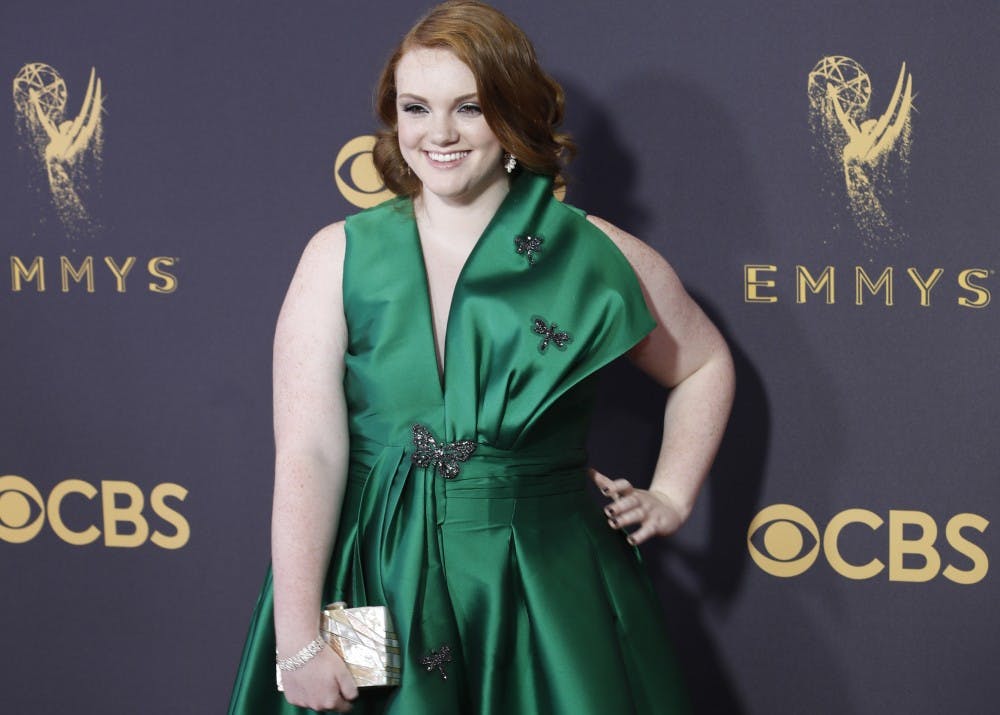This is no “To All the Boys I’ve Loved Before,” I promise.
As my friends and I settled in to watch the new Netflix flick “Sierra Burgess is a Loser,” we were excited. The movie had the perfect teen rom-com blueprint.
With a smart underdog female lead and Jamey, the jock with a sensitive side — played by the archetype of mathematical hotness and the internet's newest obsession, Noah Centineo — the film had the makings of solid rom-com mediocrity. It didn’t reinvent the wheel, but what’s not to love?
Apparently, a lot. And not just because of the cringe-worthy text message exchanges.
The film’s first mistake is inherent in its premise. When sensitive jock Jamey accidentally texts Sierra, who he thinks is mean girl Veronica, they forge a connection. As the relationship expands to hours-long phone calls and teenage pining, Sierra doesn't reveal who she really is, cat-fishing Jamey by pretending to be the beautiful, though less intelligent, Veronica. She even enlists the help of enemy-turned-friend Veronica to dupe Jamey in person.
Sierra’s manipulation, intended to be cute, robs Jamey of his right to the truth and tramples on his agency over his own choices. And while filmmakers could have offered discussion about the deception and its implications, there was nothing. The breach of trust hung in the air, treated like a flippant, endearing ruse rather than total disregard for consent and human decency.
But of course, manipulation is OK because of Sierra’s “nice girl” brand. If the roles were switched, and a popular mean girl or the male lead did the same actions, such behavior would be seen as despicable. Yet for the shy, awkward Sierra, it’s fine because she’s “nice.”
The situation is reminiscent of the “nice guys finish last” mantra that men use as reason to feel entitled to women, just because they don’t fit the philandering player trope and are convinced they are “nice.” Like these “nice guys,” Sierra, a “nice girl,” feels entitled to manipulating Jamey because she’s not the popular mean girl. And she feels no remorse.
When her deceit blows up in her face, she retreats to her bedroom and wallows in self-pity, using her insecurities about her appearance and place on the high school social ladder to justify her manipulation. Steeped in her selfish gloom, Sierra doesn’t begin to consider the effects of her actions on others.
The moment I stopped rooting for Sierra was the first kiss. In this scene, as Jamey and Veronica, pretending to be Sierra, lean in for a kiss, Sierra covers Jamey’s eyes and kisses him in Veronica’s place. It’s supposed to be a cute moment laced with humor, but it isn’t funny. It isn’t just high school shenanigans. The moment is disturbing and completely disregards Jamey’s autonomy, framing him as an object in Sierra’s personal journey rather than a person deserving of the basic decency of consent.
Even more jarring than her trickery with Jamey, Sierra betrays the one person who has been by her side throughout the movie — former mean girl Veronica. While the sweet relationship between Sierra and Veronica is the one and only triumph of the film, Sierra taints it and justifies her actions with her insecurities. But insecurity and social standing doesn’t give anyone — whether they be a woman, a nerd or another brand of underdog — the permission to manipulate others.
Sierra’s happy ending is catalyzed by a song she writes, meant to be profound but is really a cheesy, woe-is-me saga in which Sierra once again pities herself, even after all she does to harm the people around her. The ending doesn’t involve an ounce of accountability or remorse.
Another one of the film’s downfalls is the countless insults mocking transgender, gay and disabled people. Sure, the playground taunts could be chalked up to behavior of immature high schoolers, or they could be examples of the hurtful words people in these groups may have heard in high school hallways, thereby acknowledging their pain. But the filmmakers don’t approach discussion about the insults and instead allow them to linger without commentary or context. As a result, the film unwittingly legitimizes gibes against minorities.
Shannon Purser, the actress who plays Sierra, argued the problematic components of the film make Sierra a flawed, interesting character. But, “that doesn’t mean that she is absolved of her actions,” Purser said in an interview with Elle magazine.
But the film does, in effect, absolve Sierra of her actions as characters forgive her without requiring apologies or remorse. The film seems to condone her behavior by not taking the time to comment on it or offer consequences for Sierra’s actions.
Sierra Burgess may not be a loser, but she’s mean, manipulative and cruel. That’s not the type of character I’ll be rooting for anytime soon.




